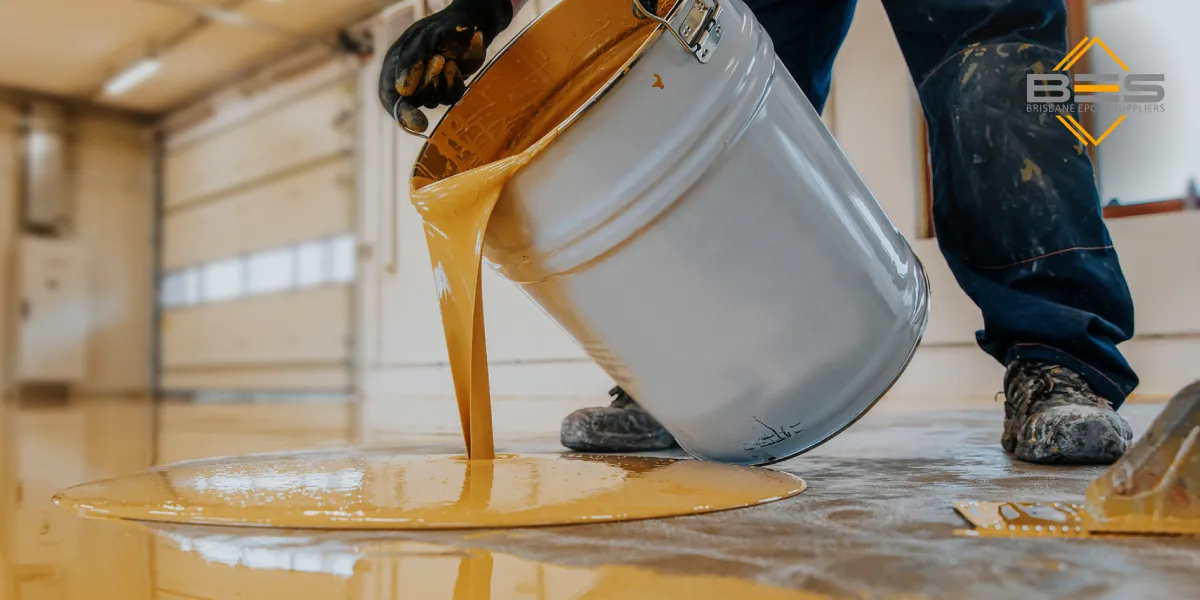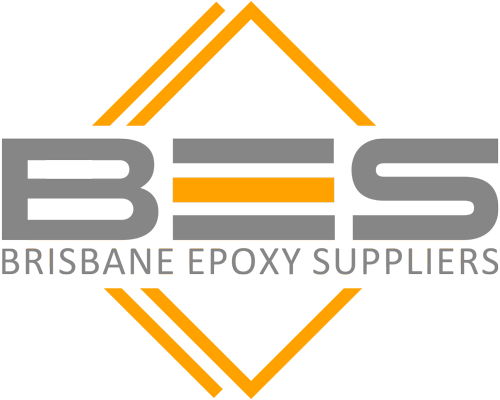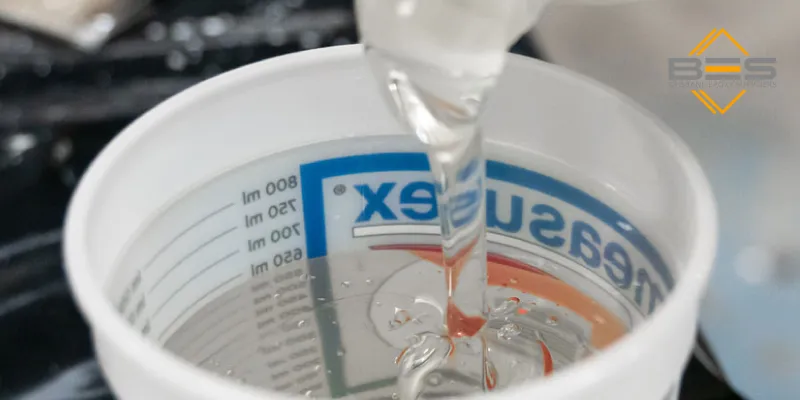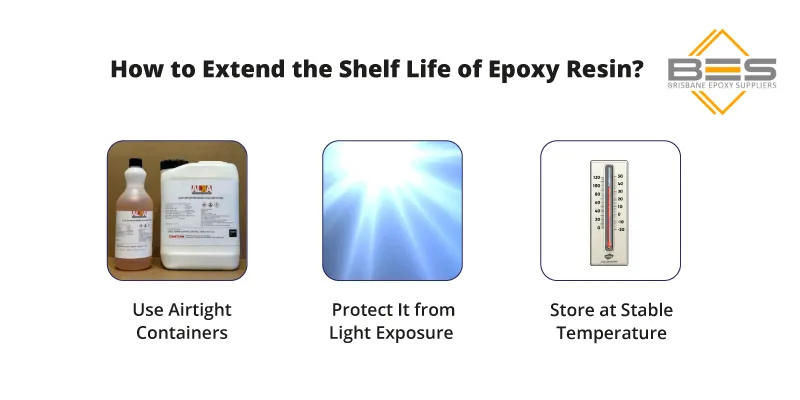Does Epoxy Resin Expire? Signs, Storage Tips, and How to Make It Last Longer

Does epoxy resin expire? Sure, it does! However, you can extend its shelf life by considering some effective factors. Epoxy resin has gained so much popularity over the last few years, and it’s for good reasons. You can use Brisbane Epoxy Flooring in industrial, commercial, and even residential buildings with low maintenance and cleaning! Amazing, yes?!
If you are about to use epoxy resin as a floor coating in your house or you want to store the extra epoxy resin, this article contains some very useful information for you. Stay tuned!
Does Epoxy Resin Expire?
Epoxy resin is widely used in residential, industrial, and commercial buildings. Does epoxy resin expire? Yes, however, it depends. Like every other chemical substance, epoxy resin does have a shelf life. Epoxy resin usually has a shelf life ranging from 6 months to 2 years, and it can expire or degrade over time.
The exact number of epoxy’s shelf life depends on different factors, such as the manufacturer, storage conditions, and the specific formula of the product. Finally, if you want to store epoxy resin, it’s better to find a cool, dry place. Otherwise, its quality can deteriorate much faster.
Factors that Affect the Longevity of Epoxy Resin
The truth is that if you don’t store epoxy resin properly, it will expire over time. Now, sometimes some factors accelerate the process of expiration. Pay attention to these factors, or your epoxy resin will expire sooner than you know!
- Storage Conditions: You must keep the resin epoxy in a dry, cool place, ideally between 15°C (59°F) and 25°C (77°F). High humidity and fluctuations of temperature can easily shorten the shelf life of epoxy resin.
- Packaging: You can keep a sealed epoxy container for up to 2 years. However, after opening the epoxy container, it is exposed to air and moisture. This can speed up the degradation process. Keep it in an airtight container.
- Exposure to Light: Be careful of UV rays when storing epoxy. Long-term exposure to UV rays can cause epoxy resin to yellow or harden prematurely. If you want to maximize the shelf life of epoxy resin, keep it away from direct sunlight.
How to Extend the Shelf Life of Epoxy Resin?
If you’re planning on storing epoxy resin for a long time, you need to do it properly. Does epoxy resin expire? If you properly store and maintain your epoxy resin, this will help extend its shelf life. Finding the best ways to store epoxy resin? Here are some golden tips to do so!
Use Airtight Containers:
It’s necessary to reseal the container tightly after each use. You need to limit the exposure of epoxy resin to air, even if you have to transfer the resin to a better-sealed container.
Protect It from Light Exposure:
For outdoor epoxy floors, you need to use a UV-resistant layer to protect it from long-term sunlight and slow down yellowing. On the other hand, it’s better to store epoxy resin in a dark place or in containers that block out UV light.
Store at a Stable Temperature:
In places like garages or sheds, where epoxy is exposed to extreme heat or cold, epoxy will expire sooner than you think. So, try to keep it in a cool, stable environment.
Common Mistakes When Storing Epoxy Resin
Does epoxy resin expire? It will, if you don’t store it properly! If you want to store epoxy resin for a long time, you need to avoid common mistakes to keep your resin fresh. Otherwise, wrong storage mistakes can shorten the product’s shelf life. Always store epoxy in a controlled, stable environment.
Mistake 1: Storing in Uncontrolled Environments
Fluctuations of temperature and high humidity level have a direct impact on the shelf life of epoxy resin. Do not ever leave your epoxy resin container in a garage, shed, or basement. These places can expose the epoxy resin to extreme temperatures and humidity levels, which will surely reduce its shelf life.
Mistake 2: Leaving Epoxy Containers Open
Even experienced epoxy resin users can make this horrible mistake. Under no circumstances should you allow air or moisture to enter the epoxy container. Otherwise, this can quickly degrade epoxy resin. Don’t leave the lid off or loosely seal it for long periods.
Mistake 3: Mixing Old and New Resin
If you have an older batch of resin, don’t mix it with fresh resin. Because the older batch may already be close to expiration, combining these two can reduce the quality of the newer epoxy resin. It’s better to use each container separately to ensure consistency and curing performance.
Dangerous Signs of Expired Epoxy Resin
Does epoxy resin expire? Yes, and when it does, do not ever use it for your projects, no matter what! Using expired epoxy resin can lead to project failure. So, it’s better to be familiar with the signs of expired epoxy to distinguish the ones that have expired. Here are the most common indicators:
Thickening or Gelling
If the epoxy resin has become thicker or gel-like in consistency, that’s a strong sign that your epoxy resin has expired. Expired epoxy resin won’t mix or cure correctly.
Cloudiness or Separation
When mixing epoxy resin and hardener, they should stick together and form a united liquid. When you notice cloudiness or a visible separation between the resin and hardener, this strongly means that the epoxy has expired.
Slow or Incomplete Curing
When epoxy resin is cured, you must see a smooth, hard finish. If the surface is not curing after the expected time, or leaving a tacky or rubbery surface behind, that’s a sign of expired epoxy.
Yellowing
Yellowing is not always a sign of long-term UV exposure. If the epoxy resin has a noticeable yellow shade before use, that may be a sign of expired epoxy.
Golden Tips for Working with Epoxy Resin
If applying epoxy resin is like a DIY project to you, here are some golden tips that will help you to work better with epoxy and gain some professional results.
Oxidation VS. Yellowing of Epoxy Resin
The truth is that epoxy resin can experience oxidation and yellowing. However, you need to understand the difference between these two processes. Here’s a complete explanation of both of these processes.
Oxidation of Epoxy Resin
Oxidation of epoxy resin may happen so fast that you won’t even notice! Therefore, you need to be cautious. After opening the container, when the epoxy resin encounters oxygen, oxidation may happen. Usually, this can cause fast hardening and discoloration of the epoxy floor. This can even hurt the adhesion process.
This chemical reaction happens over time when the epoxy resin is exposed to air for a long period. The best way to avoid this problem is to seal the resin tightly after use and store it in an airtight container.
Yellowing of Epoxy Resin
Epoxy resin turning yellow is a whole other story. Yellowing of epoxy resin is caused by exposure to UV light. When the epoxy floor is exposed to sunlight for a long time without a UV-resistant topcoat, it turns yellow faster than other kinds of epoxy floors. However, this doesn’t mean that UV-resistant epoxy floors don’t yellow over time.
The yellowing of epoxy floors over time doesn’t show that the epoxy resin has expired or is unstable. The big difference between yellowing and oxidation of epoxy resin is that yellowing affects the appearance, while oxidation primarily affects the structural integrity of the resin.
Final Thoughts:
So, does epoxy resin expire? Yes — like any chemical product, epoxy resin does have a limited shelf life. However, with proper storage practices such as using airtight containers, avoiding light exposure, and maintaining stable temperatures, you can significantly extend its usability. Never ignore the signs of expired epoxy, as using it can ruin your project and waste time and materials. By understanding how to store and handle epoxy correctly, you’ll ensure the resin performs beautifully every time, whether for home, commercial, or industrial flooring.















